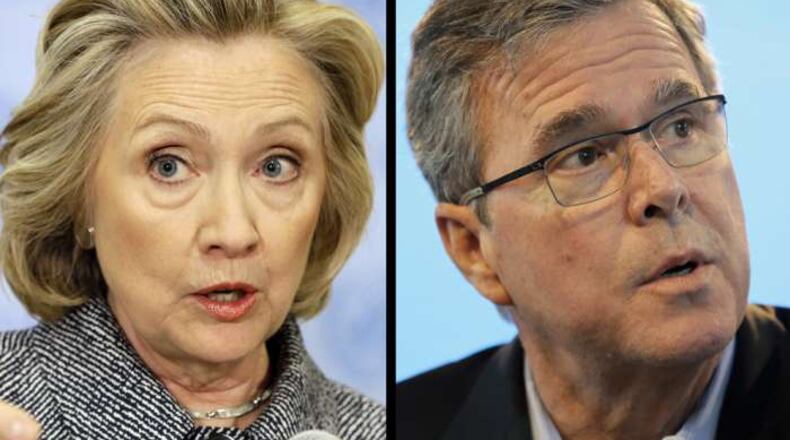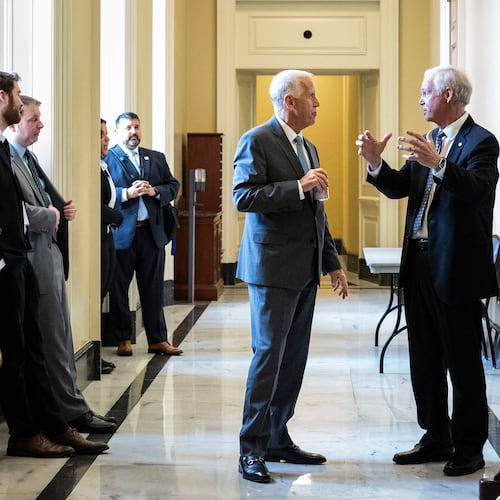If Jeb Bush had been president, he too would led the country into an invasion of Iraq, he told Fox News over the weekend.
“I would have [authorized the invasion], and so would have Hillary Clinton, just to remind everybody. And so would almost everybody that was confronted with the intelligence they got,” Bush said.
That latter statement is demonstrably untrue, of course. The record shows that a lot of people who were "confronted with the intelligence" decided to vote against the Iraq war resolution, including Bob Graham, the well-respected chairman of the Senate Intelligence Committee. He was joined in that "no" vote by 20 other Senate Democrats, and a strong majority of House Democrats voted against the war resolution as well.
But Hillary Clinton, as Bush reminds us, did vote in favor of the war resolution, a decision that probably and properly cost her the Democratic nomination in 2008. Other leading Democrats, including John Kerry, Joe Biden and Georgia Sen. Max Cleland, also voted for the resolution. They allowed themselves to get swept up in the contagion for war created by the administration, and they made the biggest mistake of their public careers by doing so.
However, Bush may push the evidence too hard by suggesting that Clinton's vote in favor of the war resolution means that as president, she would have driven us into war with the single-minded determination of a George W. Bush and Dick Cheney. If you're interested, go read Clinton's 2002 floor speech in which she explains why she was about to vote in favor of the resolution, and judge for yourself whether an executive decision to go to war can be inferred from a legislative decision to allow war as an option.
In his comments over the weekend, Jeb Bush did acknowledge the obvious, that mistakes had been made in the invasion and occupation of Iraq. “By the way, guess who thinks that those mistakes took place as well? George W. Bush,” Jeb said. “Yes, I mean, so just for the news flash to the world, if they’re trying to find places where there’s big space between me and my brother, this might not be one of those.”
There's no sign of regret in Jeb's statements about the decision to invade, no sense of hard lessons learned or second thoughts pondered. There's no recognition that the decision itself was fundamentally flawed, and not just poorly executed. Put into the same or similar situation as president, Jeb seems to be telling us, he would follow much the same path that his brother took. That sense is compounded by the fact that Jeb has surrounded himself with many of the same foreign-policy advisers who dominated his brother's administration.
Clinton, in contrast, claims to have been chastened by her decision and its aftermath. In her memoir published last year, she wrote:
"I thought I had acted in good faith and made the best decision I could with the information I had. And I wasn't alone in getting it wrong. But I still got it wrong. Plain and simple."
That doesn't by any means wipe away the reality of Clinton's support for what became the biggest foreign-policy blunder in this nation's history, a mistake with major repercussions to this day. But it does suggest a difference in approach between Clinton and her prospective Republican challengers, and that difference could be important given the decisions that will face our next president, from Iran to Ukraine to who knows where.
About the Author
Keep Reading
The Latest
Featured



